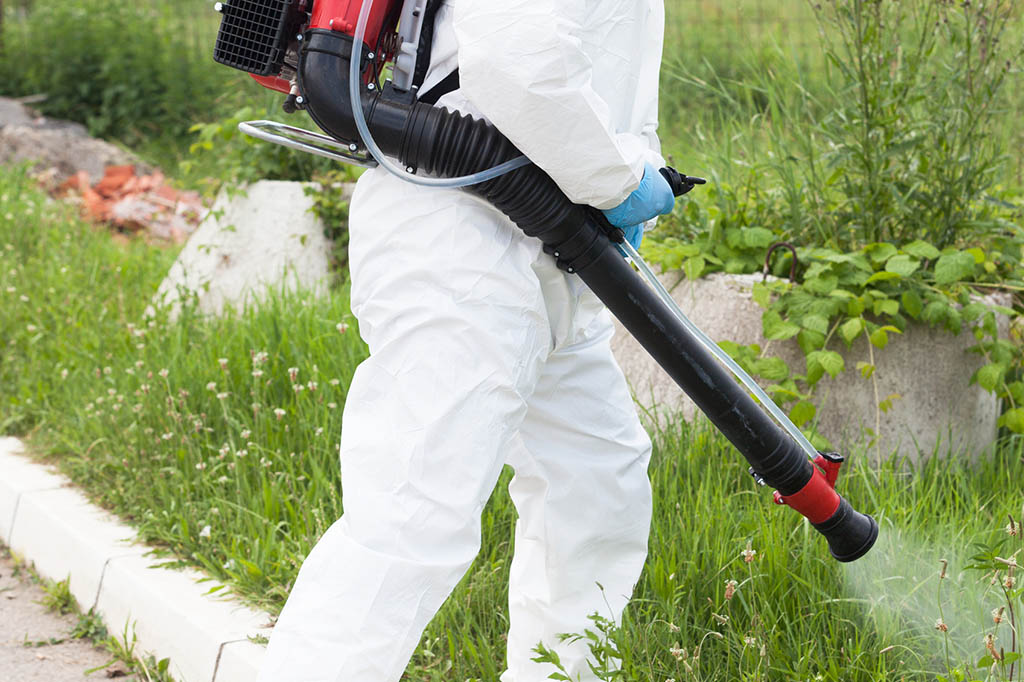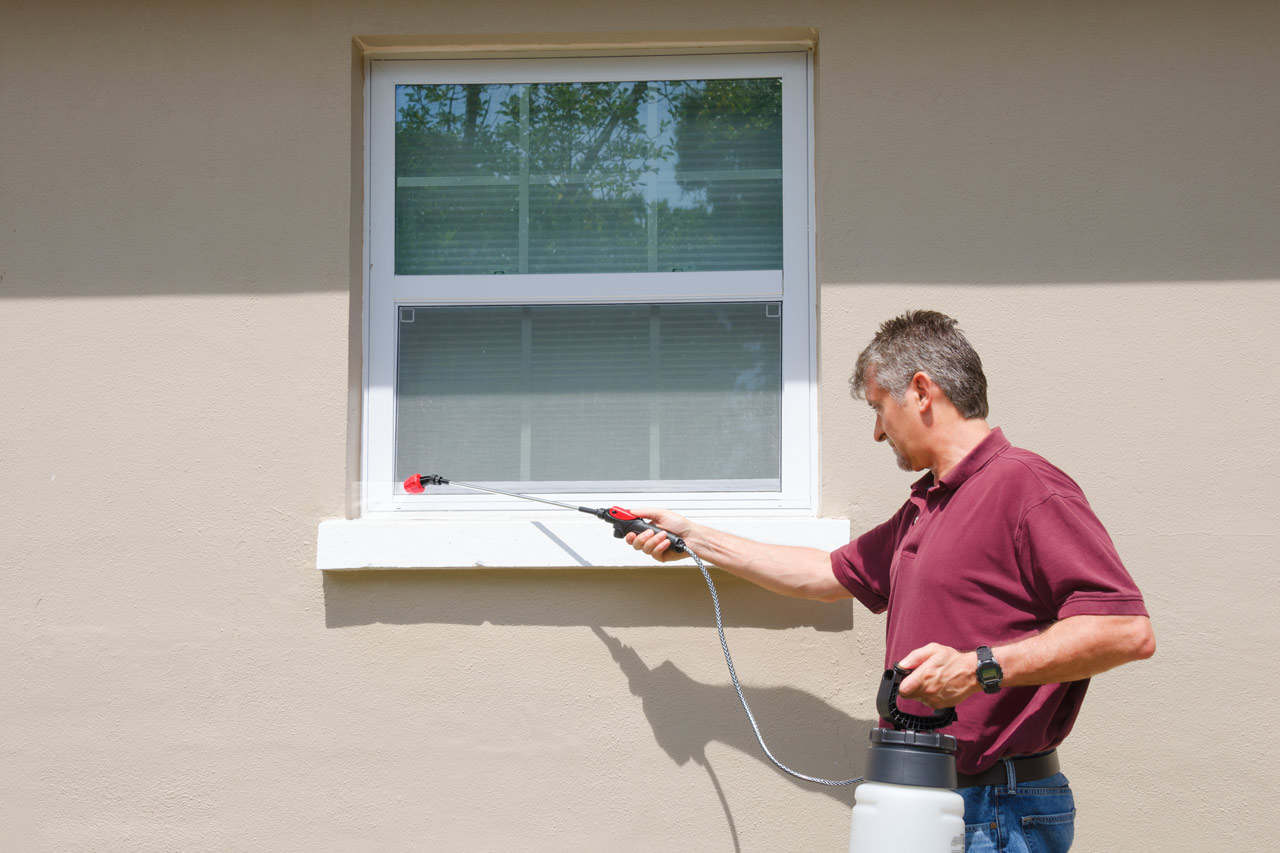
Professional wasp nest removal ensures safe and effective treatment, reducing the risk of stings. Costs vary based on factors like nest size, location, and accessibility, with harder-to-reach nests often requiring specialized removal.


The average cost to caulk 100 linear feet of your home's perimeter is $325, but you can pay between $250 and $400. Factors that influence the final project cost include your home size, the condition of your home, and any finishing options you choose.
Most contractors charge $325 per 100 linear feet when charging for whole-house caulking. With prices ranging from $250 to $400 for 100 linear feet.
A quote for perimeter house caulking includes costs for materials, delivery, prep work, labor, and finishes. Generally, contractors provide all-inclusive quotes for smaller perimeter caulking jobs. However, some contractors may charge hourly for labor that covers setup, work, and cleanup.
When charging per project, contractors factor in the size and condition of your home to provide an estimate based on how many hours are needed. It's not uncommon for contractors to charge a minimum rate for smaller projects.
If you opt to have a painting company that charges an hourly rate caulk your home's perimeter, the average hourly rate is between $25 on the low end to $75 on the higher end. If you hire a handyperson to complete the job, the average hourly rate of the handyperson can look like $55 to $75.
The cost to caulk the perimeter of your home breaks down to $2.50 to $4 per linear foot, with labor and materials folded into the cost.
No matter which type of caulk you choose, the cost will be about the same. While prices for different types of caulk are similar, it's helpful to know about the options offered by painters and contractors.
Polyurethane caulk: A tougher caulk that’s ideal for areas with lots of exposure to the elements. Its durable, gooey consistency can make it difficult to control during application.
Acrylic latex caulk: Easy to apply for a smooth finish, this is considered a mess-free choice.
Solvent-based caulk: Ideal for areas on the gutter and roof, solvent-based caulks are not degraded by direct sunlight. They can also be applied when surfaces are wet, as long as a professional has the right expertise.
Silicone caulk: Resistant to moisture and extreme temperatures, silicone caulk is a top choice for exterior caulking.
Hybrid caulk: If caulking is being done next to a window and wall, hybrid caulks can work beautifully because they provide the qualities of both polyurethane and silicone that are needed for these special areas.
If you're having windows, doors, and other features caulked, you may pay based on the time and attention needed for these jobs.
If you're sealing windows, expect to pay between $30 and $100 per seal. Homeowners generally pay about $50 per average-size double-hung window for caulking. Larger windows, bay windows, picture windows, and specialty windows can cost anywhere from $75 to $85 per window.
When sealing doors, expect to pay between $40 and $100 per door. If you're caulking larger patio doors or sliding doors, the price for caulking can be double the cost for a standard entry door.
A homeowner in a typical 1,500-square-foot home can expect to pay between $150 and $200 to have ductwork sealed, but you can DIY this project fairly easily. Just make sure to buy duct sealant and clean the areas before caulking them so you get a good seal.
The average cost to seal a roof is $1,220. There are several coating materials with different price points and pros and cons. Regardless of which one you choose, you’ll usually pay more to seal a pitched roof than a flat roof.
Perimeter caulking costs can vary wildly from home to home. The specifics of your house determine the time and difficulty involved with getting the job done.
The size of your home is the biggest cost factor when doing perimeter sealing with caulk. Having more windows and doors can lead to higher costs if you're having every opening resealed.
If your sealing pro needs to climb to the second story to caulk your home's perimeter, expect a higher estimate.
If your home has lots of gaps that require heavy-duty sealing, expect the project cost to rise.
Purchasing the caulking materials needs to complete this job on your own works out to a total project cost of around $15 to $20 for 100 linear feet.
Homeowners willing to do their homework on the many different caulking products out there may find that the savings justify the effort of caulking an entire perimeter. Of course, many homeowners are surprised to discover just how difficult it can be to properly and gracefully apply caulk.
"If you are considering tackling caulking your home yourself, start with a small area to get a feel for the process, then determine if you'll continue the rest of the project or contact a pro,” says Andy Kilborn, Angi Expert Review Board member and owner of Andy’s Handyman Service in Des Moines, Iowa.
While you can save About $300 per 100 linear feet when you caulk your home on your own, the process can be difficult and messy. For best results and a fully sealed home, hire a local handyperson to get the job done for you.
Caulking helps to preserve your foundation, keep out drafts, keep out pests and fill in gaps.
If you're using high-quality caulk, sealing your home should be done roughly once every five years. You can also spot seal as needed when you notice gaps. People who live in harsh climates may need caulking done more frequently.
Yes, it is possible to seal a home too tightly. This is where having a professional handle the job becomes important. A home that is too sealed poses risks for carbon monoxide poisoning.
Generally, adding insulation is considered to be more energy-efficient than sealing. However, sealing done with new insulation can make a home even more efficient than either option alone.
When choosing between caulking versus weather stripping, caulking is preferred for immovable areas of your home. Moveable features like doors and windows do better with weather stripping.
From average costs to expert advice, get all the answers you need to get your job done.

Professional wasp nest removal ensures safe and effective treatment, reducing the risk of stings. Costs vary based on factors like nest size, location, and accessibility, with harder-to-reach nests often requiring specialized removal.

Discover how much mosquito control costs based on key factors such as yard size, service frequency, treatment method, and more with our detailed guide.

HomeAdvisor's expert guide to the cost of carpet beetle extermination ensures you know how much you'll pay based on area, treatment frequency, method, and more.

Use this guide to budget for spider extermination costs based on factors such as treatment area size, treatment frequency, infestation level, and more.

Discover how much squirrel removal costs based on factors like the method used, the amount of squirrels in your home, and the infestation location.